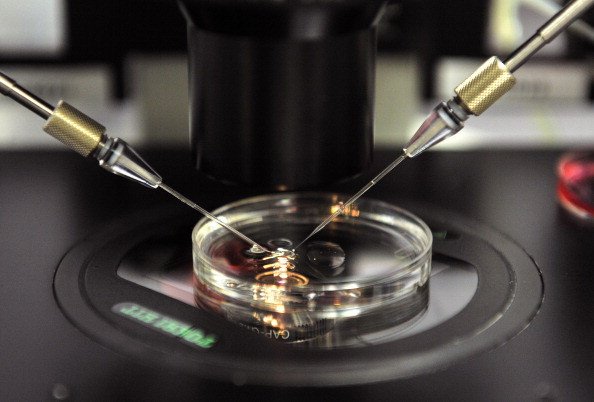Endometrial scratching: Womb 'injury' can increase chances of getting pregnant
The invasive procedure doubles the chances of some women getting pregnant.

Endometrial scratching could help women with fertility problems to get pregnant, scientists have said. The technique could increase the chance of embryo implantation in both women treated in vitro fertilisation (IVF) and with intrauterine insemination (IUI).
Endometrial scratching involves placing a small instrument inside the uterine cavity to remove part of the uterine lining. It is believed that this results in some kind of 'injury' to the womb lining, with positive results. It appears to make it more receptive to an implanting embryo.
Presented at the annual meeting of the European Society for Reproduction and Embryology (ESHRE), the recent findings support this theory.
The researchers from Cochrane – an independent network of scientists aiming to summarise the available evidence in different medical fields – conducted a literature review to investigate the effects of uterus scratching in women before they went through intrauterine insemination.
For some of these patients, the procedure appears to lead to better pregnancy outcomes, although the available data remains quite poor.
Interesting results on small samples
In total, eight trials including 1,180 women were included in the review. Researcher Sarah Lensen from the University of Auckland, New Zealand, investigated whether endometrial scratching promoted live birth or ongoing pregnancy compared with no intervention or a placebo intervention.
Endometrial scratching appeared to roughly double the chance of clinical pregnancy and live birth compared to no procedure or a placebo procedure – both for women treated with IUI and for those conceiving naturally. These results were similar to that of a previous Cochrane review focusing on women treated with IVF. There was no evidence that endometrial scratching has any effect on miscarriage, ectopic pregnancy, or multiple pregnancy.
The problem with this meta-analysis is that it is based on small studies with low quality protocols and findings, most of them associated with a serious risk of bias. "The results must be treated with caution," Lensen emphasises.
This view is shared by the British Fertility Society Chair, Professor Adam Balen: "The Cochrane review's results are interesting because the fact that endometrial scratching could promote embryo implantation is a theory that has been knocking around for a while. However, we need a large randomised controlled study to confirm this. Without better quality studies with larger samples, we certainly cannot suggest that anyone trying to get pregnant should undergo this procedure", he told IBTimes UK.
Beneficial inflammation
Further research will also have to determine which women may benefit most from this procedure. Though endometrial scratching does not endanger women's health, it is an invasive procedure which can cause significant discomfort. It is therefore important to identify for whom it really can have an added-value so that women don't go through it in vain.
Scientists also need to explain why endometrial scratching makes it easier for the embryo to implant in the womb. The main theory they have so far come up with is that it creates a 'beneficial inflammation' – creating a favourable environment in the womb.
"The action of taking a sample and causing a scratch to the uterus, induces a small inflammatory response, similar to when you scratch your arm. The biological factors that are released as part of this response help to signal the embryo to implant in the lining of the womb and therefore cause an increased chance of getting pregnant", says Lensen.
Fertility and reproductive health research is progressively focusing on how to best individualise fertility treatments depending on women's own issues. In this context, endometrial scratching could be an interesting option for some patients, to make sure the embryo gets correctly implanted.
© Copyright IBTimes 2025. All rights reserved.






















